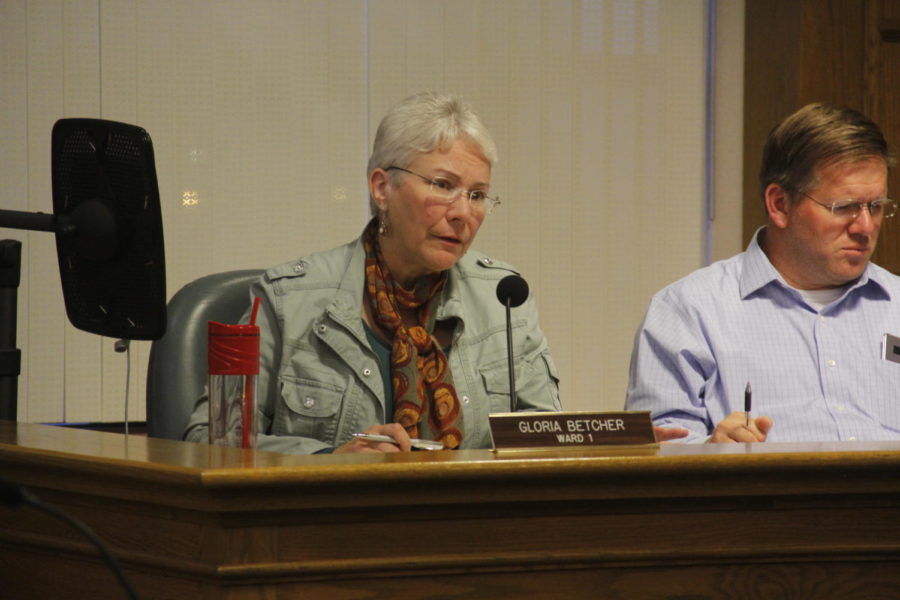Editorial: Council should consider student voice on short-term rentals
City council member Gloria Betcher asks Ames police chief Charles Cychosz about the issue of the Ames homeless population during the public forum at City Hall on Sept. 25.
October 24, 2018
The Ames City Council deferred drafting any specific language regarding a short-term rental policy Tuesday in hopes of collecting more specific data.
A short-term rental, similar to AirBnB, allows for the “use of a home for the lodging of guests.” Currently, “this type of activity is not currently an allowed use of residential household living uses, such as single-family homes.”
Policies, as recommended to the council for drafting an ordinance, include rental periods of 30 consecutive days or less, housing limitations, occupancy limitations, an operating license through the city and on-site parking.
Also recommended were general safety requirements including fire safety, inspections, renewal standards and a system to monitor compliance.
However, per the recommendation of the report, short-term rentals should be “allowed only within a single-family or two-family dwelling,” with condos and apartments excluded from offering the option to host AirBnBs.
This point, as observed at the meeting, has already begun to be a point of contention for the council.
Councilman Tim Gartin said that at this point, he would like to “allow people to continue what they’re doing” and would need evidence as to why renters should be excluded from hosting AirBnBs.
But councilwoman Gloria Betcher said she would refuse to approve a referendum that allows renters to host an AirBnB: “I’m not willing to include rentals. If we do that I’m not voting for the ordinance.”
No matter what the next steps the council decides to take, whether it be drafting a referendum in the next couple of meetings or putting off taking action on the topic until a later date, the council must ensure that they are advocating for and collecting data on the student perspective, as well.
Student or not, hosting an AirBnB allows for an extra source of income.
Students make up a large portion of the rental population in Ames. To approve a referendum that excludes rental property in turn excludes students.
However, students may already be limited in hosting AirBnBs because that would mean renting a rental. Should property managers and landlords already have something built into the lease limiting short-term rentals, the point itself may be moot.
But without data, it is hard to recognize the extent in which the council’s action, or lack thereof, would impact students. That is why it is important that when looking into housing issues such as this, the city takes extra measures to ask for and listen to the student experience.
However, it is also on students to speak up and to advocate for how they would like the city to move forward. The council is still in the very early stages of coming to a solution and it is important that students, should they deem it important, reach out to their representatives before it is too late in the process.







